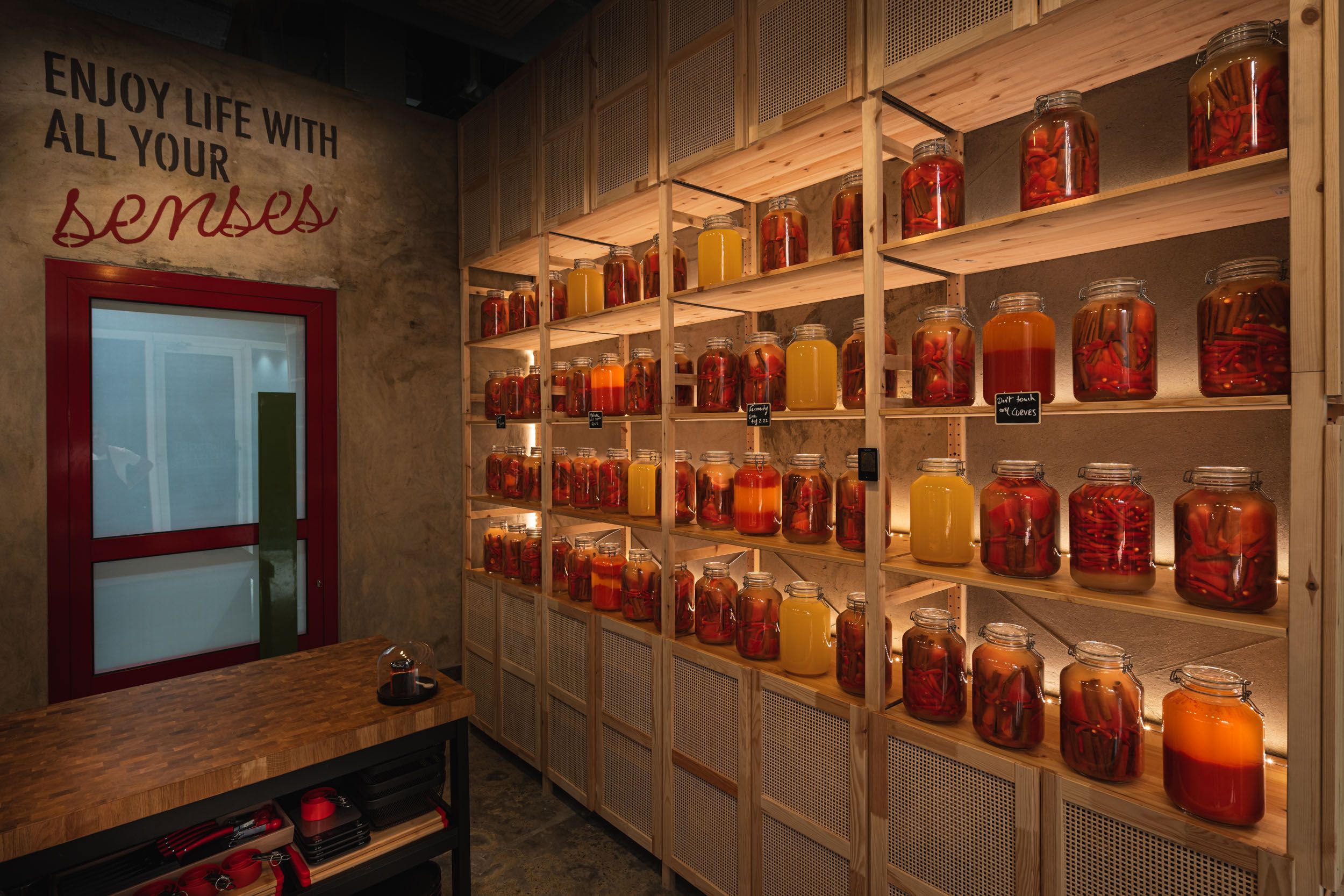The Art and Science of Fermentation | A Conversation with Maher El Tabchy, Founder of Tabchilli
)
In the latest episode of the Gulfood Let's Chew Podcast, we had the pleasure of delving into the intricate world of fermentation with Maher El Tabchy, the founder of Tabchilli and a passionate advocate for the art and science of fermenting foods.
The Journey to Fermentation
Maher El Tabchy’s journey into the world of fermentation started long before he officially founded Tabchilli. Growing up in Lebanon, Maher was surrounded by the rich flavours and preservation methods of Mediterranean cuisine, where fermented foods were a staple. These early experiences shaped his palate and planted the seeds for what would eventually become a full-blown obsession with fermentation.
“I’ve always had a strong connection to fermented foods,” Maher shared. “These are flavours you can’t create with fire—only bacteria can cultivate them. When I moved to Dubai seven years ago, I realised that the market was lacking in authentic, high-quality fermented foods. That’s when I decided to make it my mission to bring this to the UAE, not just as a product, but as a culture.”
Tabchilli was born out of Maher’s desire to fill this gap in the market. But more than that, it was about educating people on the benefits of fermented foods, both for flavour and for health. Fermentation, as Maher explained, is not just about preserving food—it’s about creating something entirely new, something that’s alive.
“The first thing that drew me to fermentation was gut health,” Maher said. “Fermented foods are rich in probiotics, which are incredibly beneficial for our digestive systems. But beyond that, they’re full of complex, unique flavours that you can’t get anywhere else.”
At his experiential space in Dubai, Maher not only produces fermented foods but also offers workshops where consumers and chefs alike can learn the art of fermentation. From vegetables to kombucha, from kimchi to sauerkraut, Maher is on a mission to show that anyone can ferment at home—and reap the rewards.
The Challenges of Fermentation
Of course, with any artisanal food production, there are challenges. For Maher, time is one of the biggest hurdles. “Fermentation is a slow process,” he explained. “It can take days, weeks, or even months to develop the right flavours. Most people don’t have the patience for that, which is why they often shy away from fermenting.”
But beyond the time commitment, Maher also faced significant regulatory challenges when setting up Tabchilli. “Working with bacteria can be tricky,” he noted. “There’s a misconception that fermented foods aren’t safe, so getting the right approvals and ensuring consistent quality was a steep learning curve.”

The Art of Fermentation
One of the key distinctions Maher makes is between pickling and fermenting—two processes that are often confused. “Pickling uses vinegar to preserve food, which kills the bacteria,” Maher explained. “Fermentation, on the other hand, uses salt to promote the growth of beneficial bacteria, which not only preserves the food but also enhances its nutritional value.”
For those looking to try their hand at fermentation at home, Maher recommends starting with something simple, like sauerkraut. “All you need is a sterilised jar, some cabbage, and a bit of salt,” he advised. “Massage the salt into the shredded cabbage, pack it into the jar, and leave it for a few weeks. It’s easy, and the results are incredibly rewarding.”
Trends in Fermentation
As for the future of fermentation, Maher sees a growing interest in fermented drinks like kombucha, especially in a market like Dubai where many restaurants don’t serve alcohol. “Kombucha and other fermented drinks are becoming popular as alternatives to mocktails and juices,” he observed. “They offer a unique, sour flavour profile that’s really catching on.”
Maher also predicts that traditional fermented foods like kimchi and sauerkraut will continue to gain traction, particularly as more people become aware of their health benefits. “People are looking for food that’s unprocessed, with simple ingredients,” he said. “Fermented foods fit perfectly into that trend.”
The Heart of Tabchilli
Of all the products Maher has developed, his personal favourite is the one that started it all—his fermented chilli, the namesake of Tabchilli. “I’ve always loved spicy food,” Maher said. “My fermented chilli takes three months to make, using a special salt from my home country of Lebanon. It’s a labour of love, but the depth of flavour is unmatched.”
This chilli, which Maher began making in his kitchen years ago, is more than just a product—it’s a symbol of his journey and the passion that drives him. “Fermentation is a huge world, and I’m just scratching the surface,” Maher reflected. “But if I can share this with others and inspire them to start their own fermentation journey, then I’ve achieved something truly special.”
Maher El Tabchy’s story is one of passion, perseverance, and a deep love for the art of fermentation. Through Tabchilli, he is not only bringing unique, high-quality fermented foods to the UAE market but also educating and inspiring a new generation of food lovers to explore the endless possibilities of fermentation. Whether you’re a seasoned chef or a curious beginner, there’s something to learn from Maher’s journey—and something delicious to discover in the world of fermented foods.
To learn more about Maher El Tabchy's inspiring story and the world of fermentation, listen to the full podcast episode. Discover the benefits of fermented foods, gain insights into the fermentation process, and be inspired to embark on your own fermented journey and hear more at the Gulfood Green Food For Future Summit from 24 – 26 September at Dubai World Trade Centre where Maher and 90+ other influential speakers unite.
